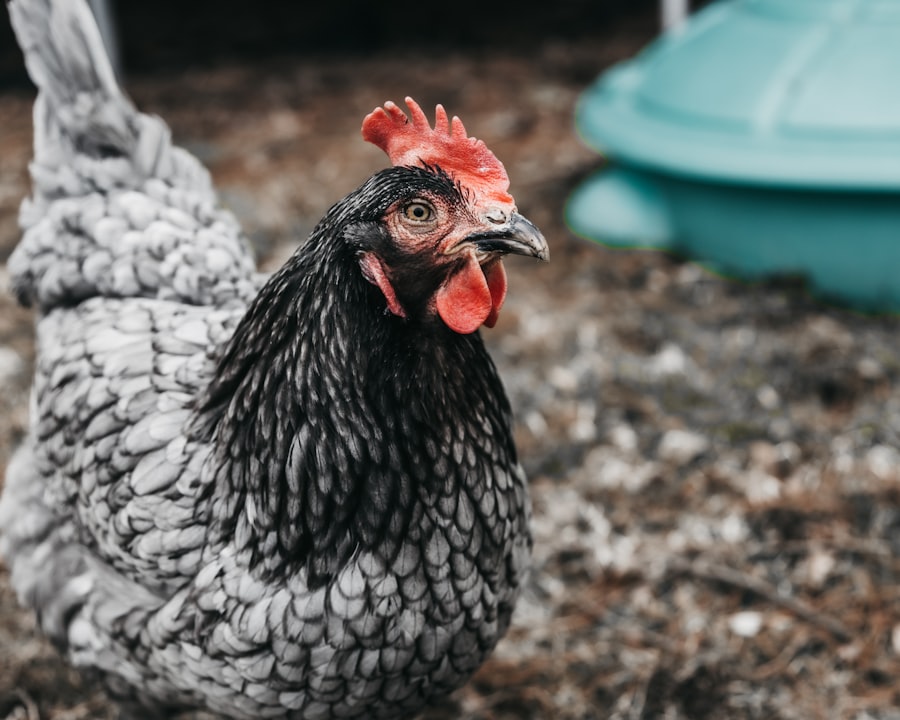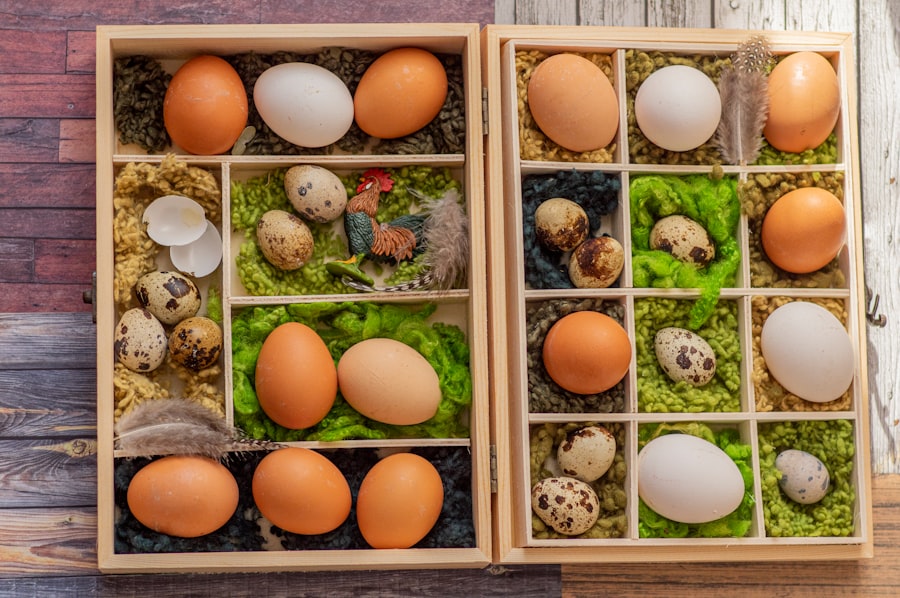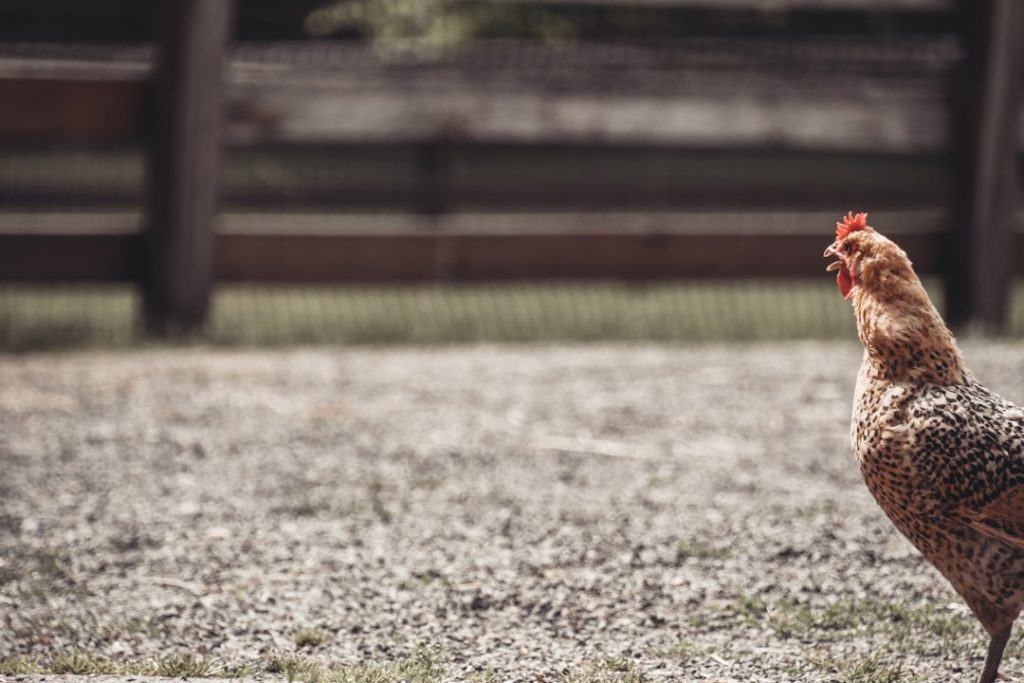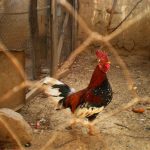Chickens are highly social creatures that thrive in flocks, exhibiting complex social structures and communicating through various vocalizations and body language. Understanding chicken behavior is essential for creating an optimal coop environment. Chickens establish a natural pecking order within their group, necessitating adequate space and resources to minimize aggressive interactions.
These birds are inherently curious and enjoy exploring their surroundings. They possess strong instincts for foraging, dust bathing, and roosting at night. Chickens prefer routine and can experience stress when faced with unpredictable environments or sudden changes.
They are also sensitive to weather fluctuations, requiring a secure and comfortable coop that shields them from extreme temperatures, drafts, and predators. By comprehending their natural behaviors, caretakers can design a coop that meets the chickens’ needs and allows them to express their innate tendencies. Observing chicken behavior enables early detection of stress or illness, facilitating prompt intervention to maintain their health and well-being.
By creating an environment that aligns with their natural instincts and social structure, chicken owners can promote a harmonious and stress-free living space for their flock.
Table of Contents
- 1 Creating a secure and comfortable coop
- 2 Providing adequate food and water
- 3 Offering enrichment and entertainment
- 4 Using fencing and barriers
- 5 Supervising free-range time
- 6 Training and conditioning the chickens
- 7 FAQs
- 7.1 What are some effective ways to keep chickens from leaving the yard?
- 7.2 What type of fencing is best for keeping chickens in the yard?
- 7.3 How can I train my chickens to stay within the yard?
- 7.4 Are there any natural deterrents to keep chickens from leaving the yard?
- 7.5 What should I do if my chickens continue to leave the yard despite my efforts?
Key Takeaways
- Chickens have complex social structures and communication methods, and understanding their behavior is crucial for their well-being.
- A secure and comfortable coop is essential for protecting chickens from predators and providing a safe environment for roosting and laying eggs.
- Providing adequate food and water is important for the health and productivity of chickens, and ensuring access to fresh water and a balanced diet is key.
- Offering enrichment and entertainment, such as perches, dust baths, and toys, can help prevent boredom and reduce stress in chickens.
- Using fencing and barriers can help keep chickens safe from predators and prevent them from wandering into unsafe areas.
- Supervising free-range time can allow chickens to forage and exercise, but it’s important to monitor them to ensure their safety.
- Training and conditioning the chickens can help them respond to commands, making it easier to manage and care for them.
Creating a secure and comfortable coop
Protection from Predators and Ventilation
The coop should provide protection from predators such as foxes, raccoons, and birds of prey. It should also be well-ventilated to prevent the buildup of ammonia from chicken droppings, which can lead to respiratory issues.
Insulation and Climate Control
The coop should be insulated to provide warmth in the winter and equipped with fans or windows for ventilation in the summer. Additionally, the coop should be designed to prevent drafts and moisture buildup, as these can lead to respiratory issues and frostbite in cold weather.
Space and Comfort for Chickens
Each chicken should have at least 2-3 square feet of space inside the coop, with additional space in the outdoor run. The coop should also have roosting bars for the chickens to perch on at night, as well as nesting boxes for them to lay their eggs. The nesting boxes should be filled with clean bedding such as straw or wood shavings to provide a comfortable and hygienic environment for egg-laying.
By creating a secure and comfortable coop, you can ensure that your chickens are safe, healthy, and happy.
Providing adequate food and water

Providing adequate food and water is essential for the health and well-being of your chickens. Chickens require a balanced diet that includes a combination of commercial feed, grains, fruits, vegetables, and protein sources such as mealworms or kitchen scraps. The feed should be formulated specifically for chickens and should contain the necessary nutrients to support their growth, egg production, and overall health.
It’s important to provide fresh feed daily and ensure that it is stored in a dry and rodent-proof container to prevent spoilage and contamination. Chickens also require access to clean and fresh water at all times. Water is essential for digestion, egg production, and regulating body temperature.
The water should be provided in a clean and sturdy container that cannot be easily tipped over or contaminated with droppings. In cold weather, it’s important to prevent the water from freezing by using heated waterers or manually refreshing the water several times a day. By providing adequate food and water, you can ensure that your chickens are healthy, happy, and productive.
Offering enrichment and entertainment
Chickens are intelligent animals that require mental stimulation and enrichment to prevent boredom and stress. Providing enrichment and entertainment in the coop can help reduce aggressive behaviors, feather pecking, and egg-eating. Enrichment can include hanging treats such as cabbage or corn on a string for the chickens to peck at, providing dust bathing areas with sand or diatomaceous earth, or placing mirrors or shiny objects in the coop for visual stimulation.
You can also provide perches, ramps, and platforms for the chickens to explore and roost on. Additionally, offering entertainment such as toys or puzzles can keep the chickens engaged and mentally stimulated. You can create simple toys such as hanging CDs or shiny objects for the chickens to peck at, or provide puzzle feeders that require them to work for their food.
By offering enrichment and entertainment, you can create a stimulating environment that promotes the chickens’ natural behaviors and reduces stress and boredom.
Using fencing and barriers
Using fencing and barriers is essential for creating a safe outdoor space for your chickens to roam while protecting them from predators and preventing them from wandering into unwanted areas. The outdoor run should be enclosed with sturdy wire fencing that extends underground to prevent digging predators from gaining access. The fencing should also be tall enough to prevent birds of prey from swooping in and should have a cover to protect the chickens from aerial predators.
In addition to fencing the outdoor run, it’s important to use barriers to prevent the chickens from accessing areas that may be unsafe or off-limits. This can include using garden fencing to protect vegetable gardens or flower beds, or using barriers to prevent access to hazardous areas such as compost piles or toxic plants. By using fencing and barriers, you can create a safe outdoor environment for your chickens to explore while protecting them from potential dangers.
Supervising free-range time

Benefits of Free-Ranging
Free-ranging allows chickens to express their natural behaviors such as foraging for insects and plants, dust bathing, and exploring their surroundings. This is essential for their physical and mental well-being.
Importance of Supervision
However, it’s crucial to supervise free-range time to prevent the chickens from wandering into unsafe areas or becoming vulnerable to predators. Without proper supervision, chickens can easily get into danger, which can be detrimental to their health and safety.
Best Practices for Safe Free-Ranging
When allowing your chickens to free-range, it’s essential to do so during daylight hours when predators are less active. You should also periodically check on the chickens to ensure they are safe and accounted for. Additionally, it’s vital to provide sheltered areas such as bushes or trees where the chickens can seek refuge if they feel threatened.
By following these guidelines, you can ensure that your chickens are safe while allowing them to enjoy the benefits of free-ranging.
Training and conditioning the chickens
Training and conditioning your chickens can help establish a positive relationship with them and make it easier to handle them for health checks or veterinary care. Chickens can be trained using positive reinforcement techniques such as offering treats or praise when they exhibit desired behaviors. For example, you can train your chickens to come when called by offering treats such as mealworms or sunflower seeds.
You can also condition your chickens to be comfortable with handling by gently picking them up and holding them for short periods of time while offering treats or soothing words. This can help reduce stress when handling them for health checks or administering medication. By training and conditioning your chickens, you can build trust and cooperation with them, making it easier to care for their health and well-being.
In conclusion, understanding chicken behavior is essential for creating a secure and comfortable coop environment that meets their needs and promotes their well-being. By providing adequate food and water, offering enrichment and entertainment, using fencing and barriers, supervising free-range time, and training and conditioning the chickens, you can ensure that your chickens are healthy, happy, and thriving. With proper care and attention to their behavior, you can create a harmonious environment that allows your chickens to express their natural behaviors while keeping them safe from potential dangers.
If you’re looking for more tips on keeping chickens in your yard, you might want to check out this article on how to build a Hannah Montana chicken coop. This article provides valuable information on creating a safe and secure environment for your chickens to prevent them from leaving the yard.
FAQs
What are some effective ways to keep chickens from leaving the yard?
Some effective ways to keep chickens from leaving the yard include installing a fence around the perimeter, using chicken wire to cover any gaps or openings, providing adequate food and water within the yard, and training the chickens to stay within the designated area.
What type of fencing is best for keeping chickens in the yard?
A sturdy and secure fencing material such as hardware cloth or welded wire is best for keeping chickens in the yard. It should be at least 6 feet tall and buried a few inches into the ground to prevent chickens from digging underneath.
How can I train my chickens to stay within the yard?
You can train your chickens to stay within the yard by using positive reinforcement, such as providing treats when they stay within the designated area, and gently guiding them back into the yard when they attempt to leave.
Are there any natural deterrents to keep chickens from leaving the yard?
Some natural deterrents to keep chickens from leaving the yard include planting dense shrubs or bushes along the perimeter, using motion-activated sprinklers, and allowing a rooster to establish a territory and keep the hens within the yard.
What should I do if my chickens continue to leave the yard despite my efforts?
If your chickens continue to leave the yard despite your efforts, you may need to reassess the security of the fencing, provide more enticing food and water within the yard, and consider using temporary confinement or a chicken tractor to limit their access to the rest of the property.
Meet Walter, the feathered-friend fanatic of Florida! Nestled in the sunshine state, Walter struts through life with his feathered companions, clucking his way to happiness. With a coop that’s fancier than a five-star hotel, he’s the Don Juan of the chicken world. When he’s not teaching his hens to do the cha-cha, you’ll find him in a heated debate with his prized rooster, Sir Clucks-a-Lot. Walter’s poultry passion is no yolk; he’s the sunny-side-up guy you never knew you needed in your flock of friends!







